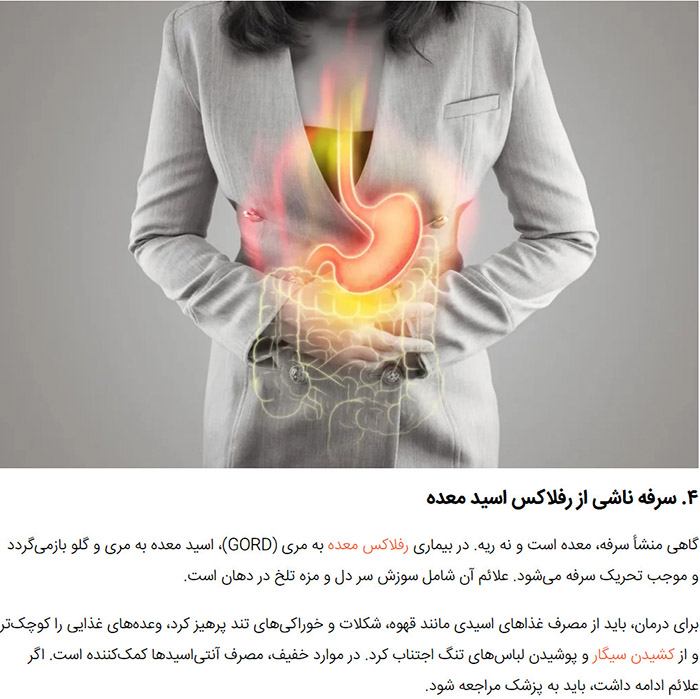A cough is not always caused by problems in the lungs; in some cases, it begins in the digestive system. In gastroesophageal reflux disease (GORD), stomach acid travels backward into the esophagus and may even reach the throat. This acidic irritation can stimulate the cough reflex, leading to a persistent, dry cough that often worsens after eating or when lying down. Along with coughing, people with GORD commonly experience heartburn, chest discomfort, or a bitter, sour taste in the mouth.
Managing a reflux-related cough usually starts with simple lifestyle changes. Avoiding acidic and trigger foods—such as coffee, chocolate, citrus fruits, tomatoes, and spicy dishes—can significantly reduce symptoms. Eating smaller meals helps prevent excess pressure in the stomach, while avoiding smoking, limiting alcohol, and not wearing tight clothing around the abdomen can also improve reflux.
For mild cases, antacids or over-the-counter medications that neutralize stomach acid may provide quick relief. However, if the cough persists for several weeks or becomes more severe, it is important to see a doctor. Persistent GORD may require stronger medication or further evaluation to prevent complications such as esophageal inflammation or long-term irritation.
Certain medications can trigger a persistent dry cough, even in people with otherwise healthy lungs. One of the most common culprits is a class of drugs known as ACE inhibitors, frequently prescribed to treat high blood pressure and heart failure. Up to 20 percent of people taking these medications may develop a chronic cough as a side effect. Although the cough is not harmful, it can be uncomfortable and disruptive.
Other medications may also irritate the airways. Beta-blockers, used to manage heart disease, anxiety, and some types of arrhythmias, can worsen airway sensitivity, especially in individuals with asthma. Similarly, NSAIDs such as aspirin and ibuprofen may provoke coughing by increasing airway inflammation or triggering allergic-type reactions in sensitive individuals.
Some drugs contribute to coughing indirectly by causing acid reflux. When stomach acid rises into the esophagus, it can irritate the throat and lead to a chronic cough. In these cases, the cough typically resolves once the medication responsible for reflux is discontinued or replaced.
If you suspect your medication is causing a cough, it is important not to stop taking it on your own. Instead, consult your doctor, who can assess the situation and prescribe safer alternatives or adjust your treatment plan to relieve symptoms.


